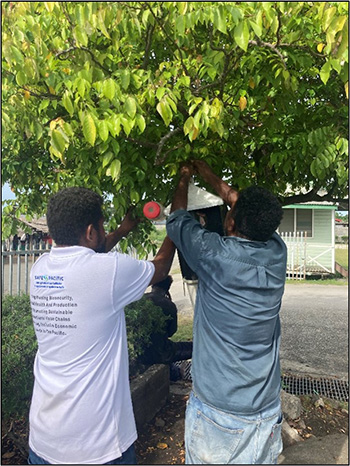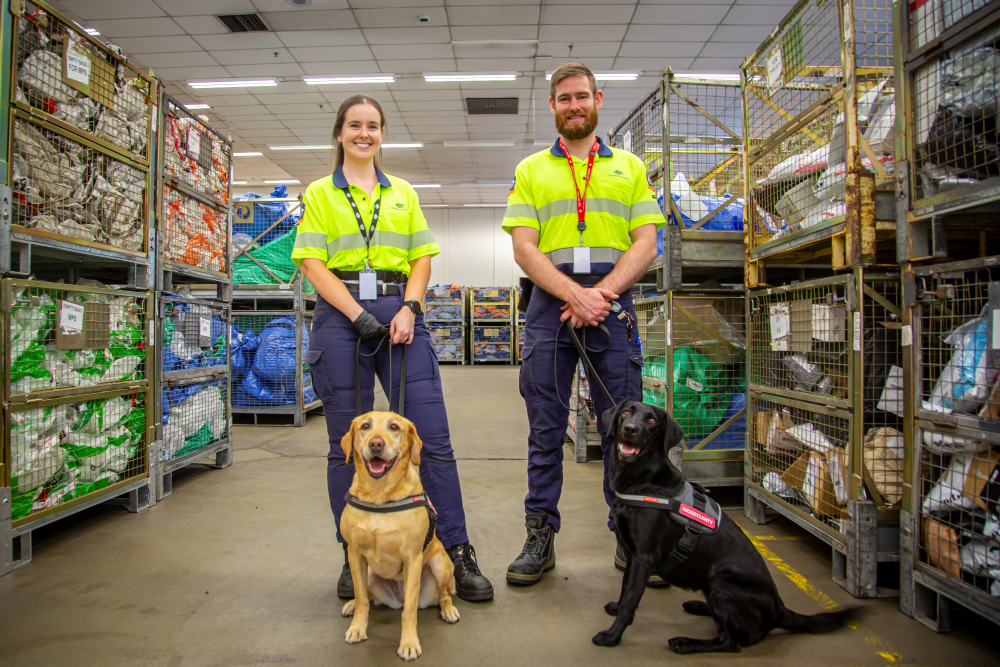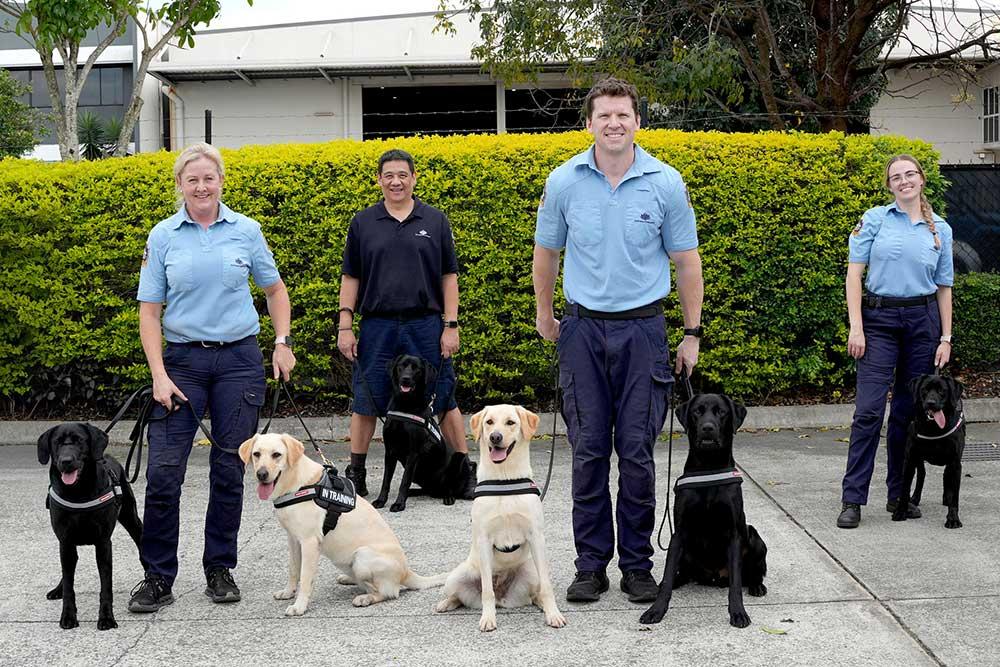With the 2023 Pacific Games to be held in Honiara this November, the Pacific engagement programs for plant and animal health have been working with the Solomon Islands Ministry of Agriculture and Livestock (MAL) and Biosecurity Solomon Islands (BSI) to help them prepare.
Preparation for these Games has left Honiara buzzing. Both government and business are getting ready to host an influx of athletes, support staff, spectators, and tourists from around 24 competing countries. Activity is expected to ramp up further in the lead up to November. In anticipation of the approximately 8000+ arrivals between 19 November – 2 December, BSI and the department have worked together to install and train staff in the use of 2 baggage X-ray machines in the Honiara International Airport. These machines will assist staff to manage risks posed by the unusually high numbers of incoming passengers.
As culturally important and exciting as events like these are, the influx of goods and people from such a diverse range of countries over such a short period of time presents biosecurity challenges. A departmental staff member, Duncan Snedden, has been seconded to BSI to train and develop the capacity of BSI workers on border operations at the airport and seaport. Duncan, who has been based in Honiara since February, will return to Australia in early December 2023. Until then, he will be an extra ‘hand on deck’ as the Government of the Solomon Islands prepares for the games. With the official catering services for the Games likely to come from international suppliers, BSI is concerned about the risks posed by importation of food. Duncan has worked with departmental colleagues to develop a list of plant and animal diseases of concern that will be used by BSI to define the import conditions for food for the Games.
Biosecurity Solomon Islands, with support from our department, are undertaking increased pest surveillance activities at several higher biosecurity risk locations, such as the athlete accommodation, the wharf and incinerator site. Insect traps have been deployed and higher risk locations will be intensively monitored leading up to and for 6 months following the Games. This increased monitoring hopes to pick up any Games-related biosecurity incursion, as early detection will provide the best opportunity for eradication or containment.
The department has also been working with the MAL Livestock Division in Honiara, Malaita, Choiseul and Western Provinces to train MAL livestock officers and extension staff and farmers to recognise and effectively respond to signs of animal diseases. Discussions regarding containment or proper destruction of food waste have been progressing to ensure that biosecurity risk material that may have inadvertently been introduced through imported goods is not able to spread and establish in the surrounding environment. The feeding of food waste (swill) to pigs is common, but presents a serious risk pathway for introduction of transboundary diseases. MAL is considering the banning of swill feeding for the duration of the Games.
The work that MAL, BSI and the department’s Pacific engagement programs for plant and animal health have been doing leading up to the Pacific Games is one small component of a much larger and longer-standing program of collaboration between the respective agencies. This work is a good example of how our agencies work together to jointly strengthen biosecurity for our countries and for the Pacific region.




